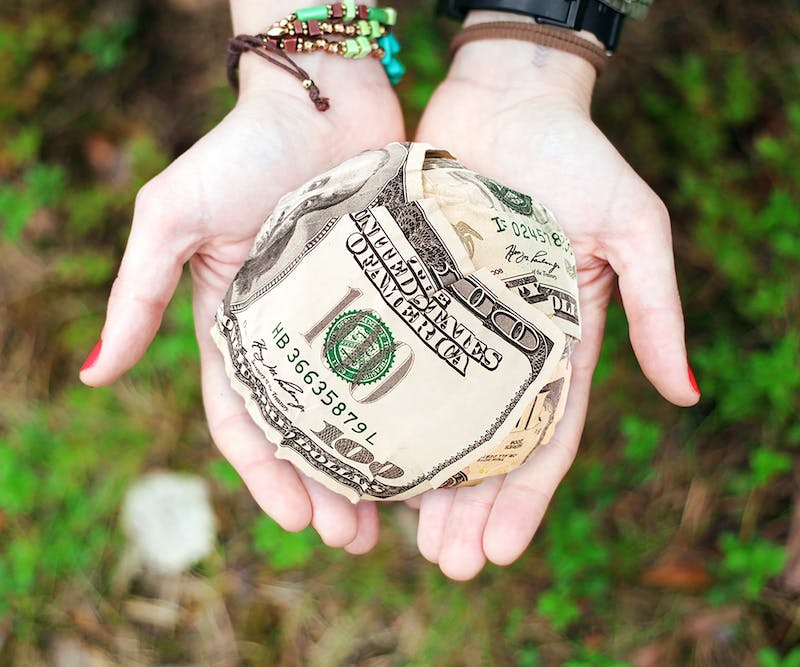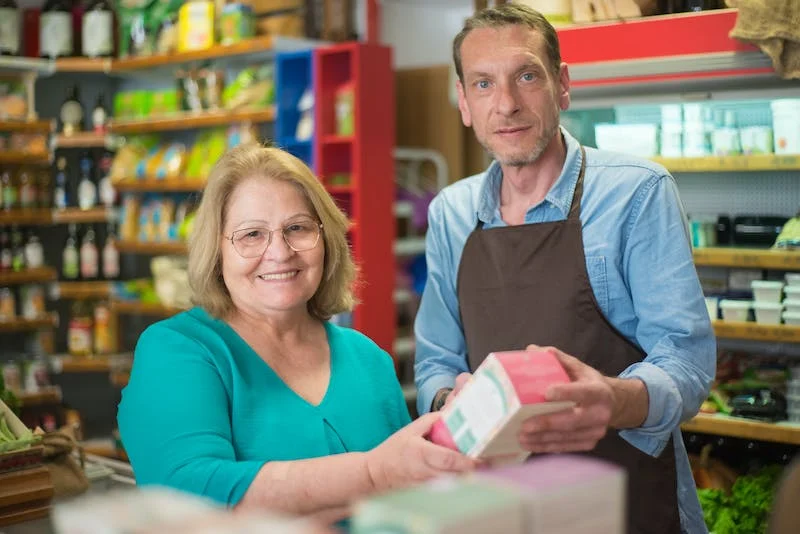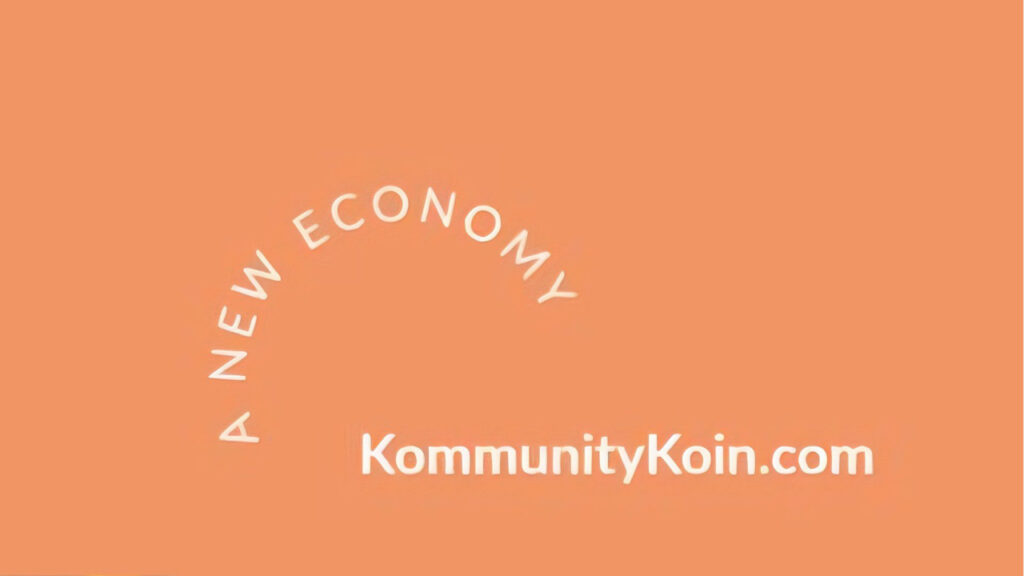
Do you find yourself constantly struggling to make ends meet and wishing you had more money left over at the end of each month? You’re not alone. Many people are facing financial challenges and looking for ways to cut expenses and save more money.
But what if I told you there was a way to do both at the same time? Through time banking, you can not only reduce your monthly expenses, but also build social capital for future use.
In this blog post, we’ll explore how to spend less each month by utilizing the power of alternative economic models; specifically, time banking.
The Economy is Getting Worse
In today’s uncertain economic climate, it’s becoming increasingly clear that the economy is getting worse.
Many people are facing job losses, salary cuts, and rising living expenses. The struggle to make ends meet is more real than ever before. This is why finding ways to save money and cut expenses has become an urgent necessity for individuals and families alike.
Traditional approaches to budgeting may not be enough to address the financial challenges we are currently facing. It’s time to think outside the box and explore alternative economic models that can help you navigate these tough times.
One such model is time banking.
Time banking can offer a unique solution to your financial woes. By engaging in a “barter-like” exchange of services within a community, you can lower expenses and live on less.
Imagine being able to get your car fixed or your house painted without having to pay for it with money. Through time banking, you can trade your skills or time for the services you need, creating a more affordable and sustainable way of living.
In addition to reducing expenses, time banking also allows you to build social capital. By participating in a community-based exchange system, you make connections and relationships with others who share your values. This social capital can be valuable not only for personal support and collaboration but also for future opportunities and endeavors.
As the economy continues to worsen, it’s crucial to explore alternative economic models like time banking. By embracing ideas like time banking, minimal living and budgeting wisely, you can have more money left over at the end of each month and build a strong financial foundation for the future.
Time banking is not only a smart financial move, but it’s also a way to create a sense of community and support in these challenging times. So, let’s take control of our financial well-being and explore the potential savings and benefits of time banking.
Why We All Need to Find Ways to Save Money

In today’s challenging economic climate, finding ways to save money has become more important than ever.
Even if you feel like; “I’m doing fine”, it’s still important to make sure that you have control of your financial situation and find ways to lower your bills and live more affordably. Embracing a more minimalist philosophy and learning how to budget effectively are key steps towards achieving financial stability.
Minimalism is not just about decluttering and simplifying your life; it’s also about changing priorities. By adopting a more minimalist lifestyle, you can prioritize your spending and focus on the essentials. This means cutting out unnecessary expenses and making mindful purchasing decisions. Minimalist living encourages people to let go of the desire for material possessions and instead focus on experiences and relationships, which can bring more fulfillment and happiness.
In addition to minimalism, better budgeting is another essential skill for saving money. Understanding your income and expenses, and tracking them regularly, allows you to identify areas where you can cut back and save. Creating a budget and sticking to it can help you allocate your money wisely and avoid overspending.
By implementing these practices, you can lower your expenses and have more money left over at the end of each month. This extra money can be put towards savings, debt repayment, or investing for the future. Ultimately, finding ways to save money is not only important for your immediate financial well-being but also for long-term financial security.
Time banking, as we’ll explore further in this blog post, offers a unique approach to saving money by utilizing the power of community and collaboration. But before we jump into that, let’s continue exploring why alternative financial approaches make sense in our current economic climate.
Why Alternative Economic Models Make Sense

In today’s challenging economic climate, we really have no other option but to explore alternative economic models that can help us navigate tough times. Traditional approaches to budgeting may not be enough to address the financial challenges you are currently facing. This is where alternative economic models come into play.
Conventional economic thinking has often faced criticism for its inability to address pressing issues such as income inequality, environmental sustainability, and social justice. Alternative economic models, on the other hand, offer a promising way to reevaluate and redesign approaches to economic systems, taking into account diverse perspectives and acknowledging the interconnectedness of social, environmental, and economic factors.
By embracing innovative models that prioritize inclusivity, environmental stewardship, and equitable wealth distribution, societies can move towards a more resilient and sustainable future.
There are a wide range of alternative economic models. Here are just a few.
Time Banking
Time Banking leverages some of the following economic concepts to promote a strong core economy and build strong and resilient communities;
Localism: Focused on strengthening local economies by prioritizing local production, consumption, and community-based businesses.
Participatory Economics (Parecon): A model advocating for decentralized planning and decision-making by all members of a community, emphasizing equity and self-management.
Social and Solidarity Economy (SSE): An approach that emphasizes cooperation, social responsibility, and community development, often manifested through cooperatives and nonprofit organizations.
Commons-Based Peer Production: Collaboration among individuals to create and share resources, often facilitated by digital platforms, challenging traditional models of production and consumption.
Gift Economy: A system where goods and services are given without an explicit agreement for immediate or future rewards, fostering social connections and trust.
Mutualism: An economic system based on voluntary cooperation and mutual aid, often associated with cooperative enterprises and the principle of reciprocity.
Mutual Credit: Mutual credit is a form of money in which users pay each other using a system of debits and credits. Within such a payment system, there is no need for cash or banks. Mutual credit can help revive organic trade between neighborhood businesses or among community members
Steady-State Economy: Advocates for an economic system that aims to maintain a stable level of resource consumption and waste production to ensure ecological sustainability.
Bartering
In a barter economy, goods and services are exchanged directly between individuals without the use of a common medium of exchange, such as money. Participants in a barter system engage in transactions by “swapping” items they possess for those they desire. The success of barter relies on a mutual agreement between parties regarding the relative value of the items being traded. The challenge in a barter system arises when there is a lack of coincidence of wants, meaning that one party may have something to offer, but the other may not desire it in return.
To overcome this, a complex web of multiple-party transactions may occur, or individuals might resort to indirect barter by using intermediary goods. While barter systems have historical roots and have been employed by various societies, the limitations of inefficiency and the lack of a standardized unit of value have led most economies to adopt monetary systems for smoother and more efficient exchanges. Or…time banking with KommunityKoin.com
Minimalism/Homesteading
Minimalism is all about owning only what adds value and meaning to your life (as well as the lives of the people you care about) and removing the rest. It’s about removing the clutter and using your time and energy for the things that remain. We only have a certain amount of energy, time, and space in our lives.
Modern homesteading refers to a self-sufficient lifestyle—living autonomously, with minimum help from others. In a nutshell, it includes subsistence agriculture, renewable energy sources when possible, home preservation of food, zero-waste living, and, depending on your skills, even homeschooling, and craftwork.
Establishing Financial Freedom
Financial freedom is having enough residual income to cover your living expenses. It is not about being rich and having tons of money, but having enough to cover your expenses so that you can spend your precious time doing what you like rather than doing things just to earn money.
Communal Living
Communal living refers to a group of people living together in a commune. The words communal and commune are related to the word common in the sense of something shared. They are also related to communism, and many experiments in communal living have called themselves communist societies
The Potential for Savings with Time Banking

When it comes to finding ways to save money and lower expenses, time banking offers a unique solution.
Time banking allows you to trade your skills or time for the services you need, eliminating the need for cash transactions. This means that you can get your car fixed, your house painted, or even receive childcare without having to pay out-of-pocket. By participating in a time banking community, you can access a wide range of services and skills from other members, creating a network of support and collaboration.
In addition to the direct cost savings, time banking also promotes a mindset shift towards minimalism. By focusing on the value of skills and time rather than material possessions, you can prioritize your spending and eliminate unnecessary expenses. This can lead to a more intentional and purposeful lifestyle, where you only spend on what truly matters to you.
Overall, time banking has the potential to save you a significant amount of money each month by providing access to essential services without the need to spend money. – you “spend” time credits instead.
Building Social Capital through Time Banking

Building social capital is a crucial aspect of time banking that sets it apart from other financial approaches. In addition to reducing expenses and saving money, time banking allows you to build connections and foster a sense of community.
By participating in a time banking community, you have the opportunity to meet and collaborate with like-minded individuals who share your values. You can exchange your skills and services with others, creating a network of support and mutual aid. This not only helps you save money by accessing services without the need for cash transactions but also builds social capital that can be valuable in the future.
Social capital refers to the connections, relationships, and trust that we develop with others. Through time banking, we can strengthen these connections and cultivate a sense of community. By exchanging services and helping one another, we foster a culture of reciprocity and cooperation. This social capital can then be tapped into for future needs or opportunities.
In addition to personal benefits, building social capital through time banking has broader implications for society as a whole. It promotes a sense of collective responsibility and community well-being. By engaging in time banking, we are actively contributing to the creation of a more equitable and supportive society.
So, not only does time banking allow us to save money and cut expenses, but it also provides an opportunity to build social capital and foster a sense of community. Embracing minimalism and engaging in time banking can truly transform our financial well-being while creating a stronger, more connected society.
How to Start Time Banking; Find Out at KommunityKoin.com

Are you ready to start saving money, reducing expenses, and building social capital through time banking? KommunityKoin.com is the perfect platform to get started on your time banking journey. Here’s how you can begin:
- Visit KommunityKoin.com
- Familiarize yourself with the ideas and all that the site has to offer
- Click the “KoinPurse” button and sign up
- Click the “Build Your Kommunity” button and start building your Kommunity
- Sign up as a KommunityKoin member for free so that you can take advantage of exclusive member benefits – like; KoinPages, KoinBoard, Member’s Only Blog posts and Featured Items
- Sign up for the Free Newsletter to stay up-to-date
- Share this amazing opportunity with others
By following these steps, you’ll be well on your way to saving money, reducing expenses, and building social capital through time banking with KommunityKoin.com. Get started today and discover the benefits of this alternative financial approach!